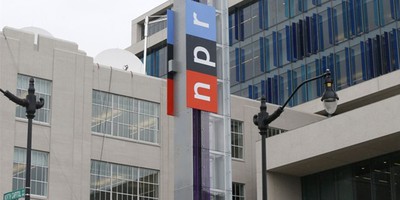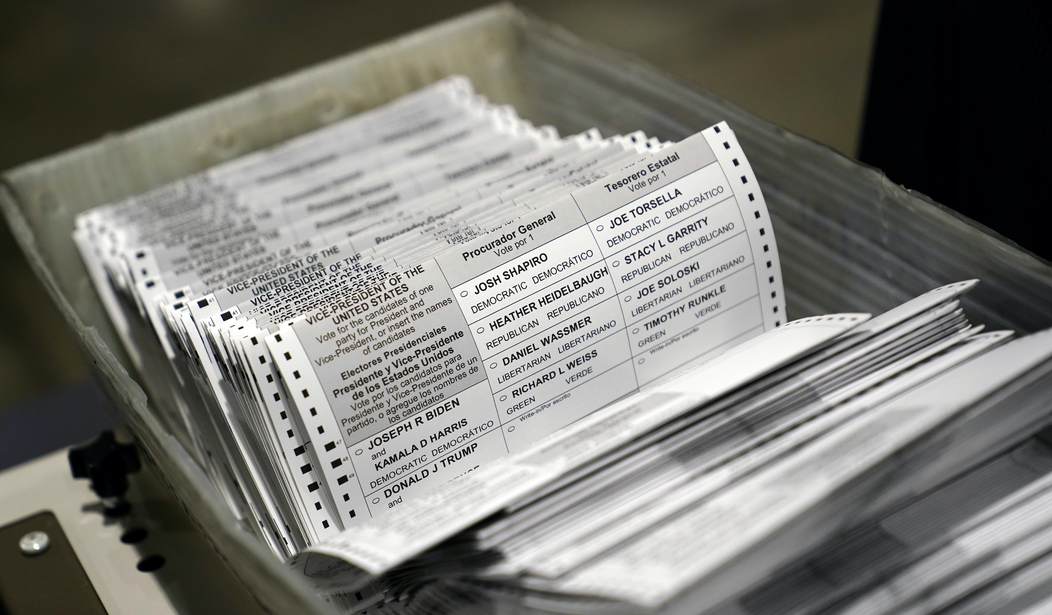S.1 failed to advance in the Senate, leaving progressives in disarray. For months, activists and politicians have pushed the phony narrative that new “Jim Crow” voting laws are putting democracy in peril, all to build pressure for a sweeping federal takeover of elections. But the euphemistically-named “For the People Act” has failed to win the support of even 50 Senators, prompting progressives to begin teeing up the backup plan: HR4, the Voting Rights Advancement Act.
It’s easy to see why S.1 stalled. The bill upends the election systems of all 50 states. Its provisions eliminate voter ID laws, let partisan operatives collect voters’ ballots without supervision, and remove proven safeguards from absentee votes. It hands the franchise to convicted felons the second they walk out of prison. S.1 saddles election offices with billions of dollars in unfunded mandates while funneling millions in taxpayer money to the campaigns of the politicians voting for it. And it imposes impossible deadlines that will force states to rush wholesale changes. S.1, in short, is an unprecedented, unconstitutional overreach that risks plunging democracy’s foundations into disarray.
These policies are not only unwise, they are unpopular. Recent polling shows that more than three-fourths of Americans favor photo ID laws for voting. By overwhelming margins, Americans want to add safeguards to the voting process to bolster confidence in elections. Only a tenth of the country wants vote trafficking by partisan operatives. When Americans find out what S.1 does, only 28% support it. Progressives may say that S.1 is “for the people,” but they seem intent on passing it in spite of them.
For months, progressives have pushed a narrative that Republican states are passing a wave of discriminatory new laws that put democracy itself at risk. President Biden has said that states like Texas and Georgia are engaged in an “un-American” assault on voting. Senator Chuck Schumer has accused conservatives of importing “autocracy.”
Recommended
But that overwrought rhetoric doesn’t match reality. When Georgia lawmakers passed electionreformsearlier this year, they expanded early voting. Peach State voters now have 17 to 19 days to cast an in person vote, including two mandatory Saturdays and two optional Sundays. Anyone can vote by mail-in ballot, and those ballots are now protected by a sensible ID law. These policies are popular and reasonable, but politicians like President Biden and activists like Stacey Abrams denounced them as “Jim Crow” racism.
They may wish they hadn’t done that. This week, West Virginia senator Joe Manchin, the lone liberal holdout on S.1, unveiled a set of proposed changes that would win his support. Among them: a nationwide voter ID law, along with 15 days of early voting, including on two weekends. Sound familiar?
Incredibly, Abrams flipped her position almost immediately, telling CNN she would “absolutely” support policies that just months ago she denounced in the most odious terms possible. Voter ID laws are either racist, or they aren’t. Abrams has already tried to claim a technicality: Manchin’s proposal says voters should be able to use a utility bill if needed. But so does Georgia’s new law.
What has all this corrosive and overheated rhetoric got the left? So far, nothing except increased distrust in our election system that has primed many Americans to view next year’s elections as illegitimate if they don’t go the “right” way.
With S.1’s fate in doubt, Congressional leaders are pivoting to H.R. 4, the “Voting Rights Advancement Act.” That bill has been described as a more moderate compromise, but it is really the backup plan to put Washington in charge of elections. In fact, Speaker Nancy Pelosi declared just days ago that H.R. 4 goes “even further” than S.1.
The bill would let the federal government overrule state election laws across the nation. No state would be able to adopt a new voter ID law, for example, or improve the way it cleans its voter rolls without giving Washington the chance to block them. Just like S.1, the legislation targets commonsense laws progressive activists don’t like—at least, until recently—and empowers Washington to veto them. H.R. 4 previously passed the House, and is awaiting reintroduction.
H.R. 4’s defenders argue that it fights voting discrimination just like the original 1965 Voting Rights Act. Yet, unlike that law, this legislation deliberately shuns objective metrics. States aren’t put under federal control based on poor minority voter registration or turnout, but mainly on how often they are sued by activists. That creates a powerful incentive for partisan attorneys to file frivolous claims that inch a state closer to federal control. It even encourages activists or political parties to collude with like-minded officials and use judicial settlements to rewrite voting laws behind closed doors. This is no idle concern. Progressive groups filed more than 200 cases before last year’s election, and many ended in agreements that weakened safeguards, extended deadlines, and skewed the rules of voting.
Americans deserve elections they can trust. Election safeguards don’t stop people from voting, but hyperbolic rhetoric that questions the credibility of democracy might. If we want a true bipartisan solution that secures voting rights and strengthens our democracy, it’s this: let the states keep working to make it easier to vote, and harder to cheat.
Jason Snead is executive director of the Honest Elections Project.

























Join the conversation as a VIP Member